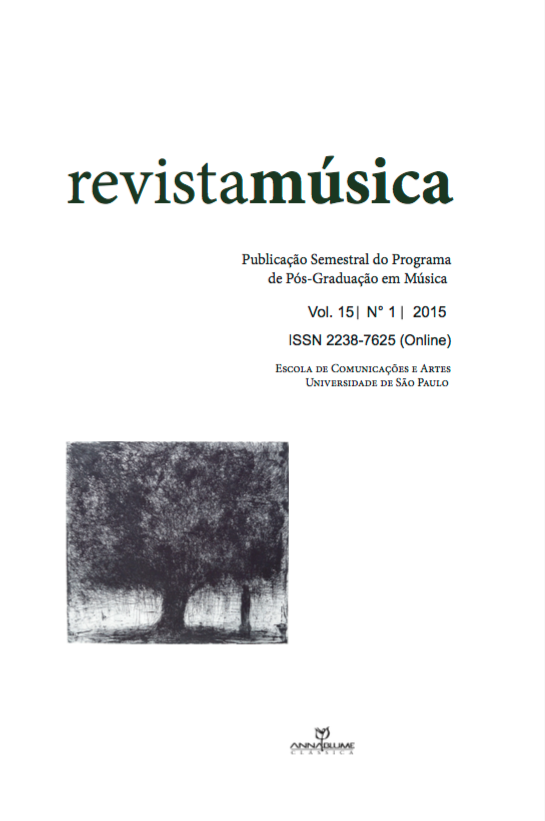The Sound of Phantasia in Motion: Musical Imagination from Aristotle to Zarlino
DOI:
https://doi.org/10.11606/rm.v15i1.114700Palabras clave:
Fantasia, Imagination, Improvisation, Mind, Sense Perception, Zarlino, Aristotle, Della Barba, VarchiResumen
Ambiguously poised between composition and improvisation, works designated as fantasia in the sixteenth century thrived on the imaginative power of virtuoso performers. Or so the term would seem to suggest: it is not immediately clear in what sense this music should be understood and singled out as the product of the imagination. Isn’t music, any kind of music, the product of the imagination? What idea of imagination was this particular kind of music meant to represent? Drawing on the Aristotelian doctrine of the internal senses, this essay explores the relationship between fantasia as a musical process and sixteenth-century notions of fantasia as a mental process. From our vantage point in history, fantasia offers a rare opportunity to observe a cultural and musical practice aimed at translating the workings of the mind into a sensible object, which the perceiving subject can then (re)experience as a representation of his own inner life, in the way he himself imagines it.
Descargas
Descargas
Publicado
Número
Sección
Licencia
Derechos de autor 2015 Giuseppe Gerbino

Esta obra está bajo una licencia internacional Creative Commons Atribución-NoComercial-CompartirIgual 4.0.
Autores que publicam nesta revista concordam com os seguintes termos:
- Autores mantém os direitos autorais e concedem à revista o direito de primeira publicação, com o trabalho simultaneamente licenciado sob a CC Attribution-NonCommercial-ShareAlike 4.0 que permite o compartilhamento do trabalho com reconhecimento da autoria e publicação inicial nesta revista.
- Autores têm autorização para assumir contratos adicionais separadamente, para distribuição não-exclusiva da versão do trabalho publicada nesta revista (ex.: publicar em repositório institucional ou como capítulo de livro), com reconhecimento de autoria e publicação inicial nesta revista.
- Autores têm permissão e são estimulados a publicar e distribuir seu trabalho online (ex.: em repositórios institucionais ou na sua página pessoal) a qualquer ponto antes ou durante o processo editorial, já que isso pode gerar alterações produtivas, bem como aumentar o impacto e a citação do trabalho publicado (Veja O Efeito do Acesso Livre).


